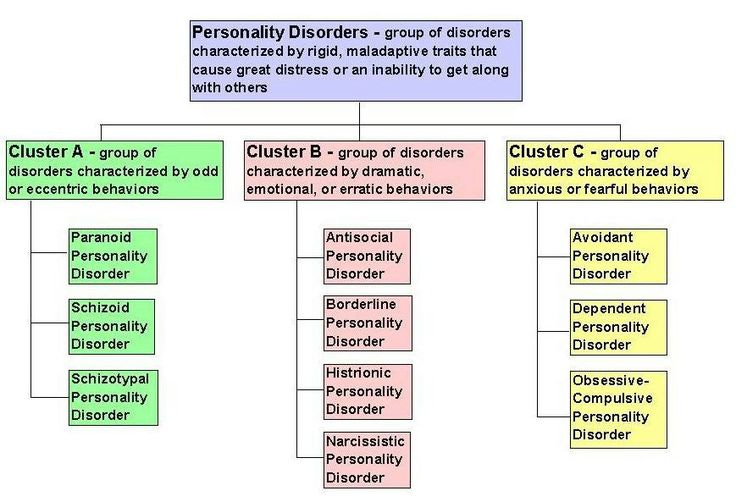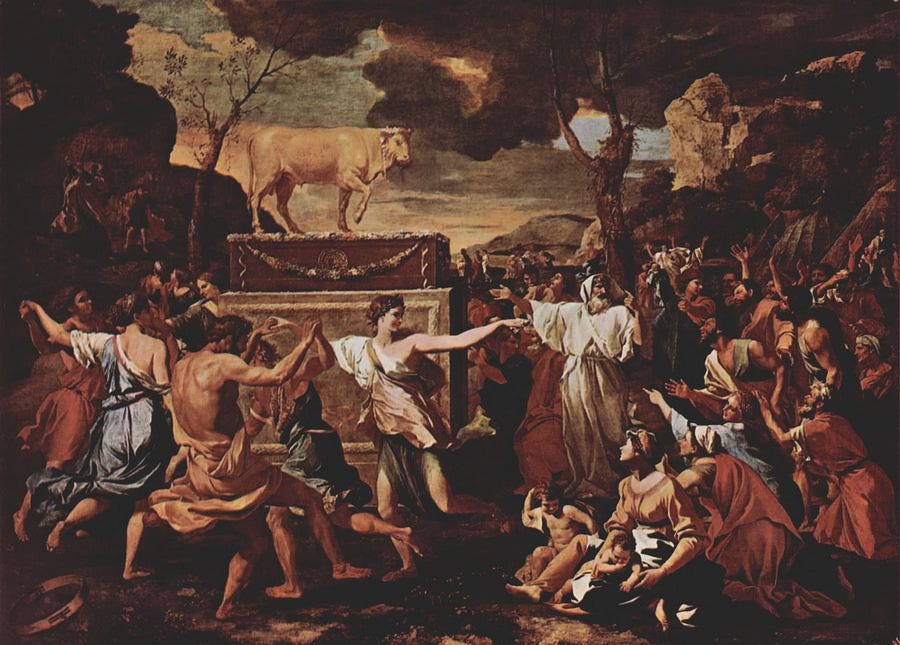There’s a narrative in the West that can be described as the weaker party in any conflict is morally right and justified in committing near unimaginable acts of barbarism and sadism against the stronger party. It feels like it’s become a state religion of the Western world!
Ariel Levin-Waldman, Israel’s i24 News
Since the October 7th massacre of Israeli (Jewish) civilians my Hamas (Jihadi) terrorists, there has been a huge rise in the number of antisemitic incidents and displays of hatred across the globe, particularly in the West. It’s a complex issue owing to the fact that there are differences between antisemitic hatred of Jews and anti-Zionism. The former seeks to deny the rights of Jews and the latter to deny the right of the State of Israel to exist.
The Russian pogroms of the late 19th and early 20th centuries offer a useful historical context. During this period, Jews in Russia, devoid of rights, faced forced migration and rioting. Many were killed. Interestingly, these acts weren't regarded as 'antisemitic' in the way we understand the term today. Since Jews had no rights, none could be violated - the official definition of antisemitism.
This observation leads to a broader reflection: our understanding of antisemitism is not a static, deeply rooted concept, but rather one that is dynamic and evolving. Antisemitism also can be drawn from cultural reservoirs of prejudice and hate accumulated over centuries.
In the Christian West, once called Christendom, the notion that Jews killed Jesus has provided a constant flow of venom into this reservoir of hatred for those that know no better. The Romans (not the Jews) killed Jesus for the capital crime of sedition. Passover drew Jewish pilgrims from throughout the region, often upwards of 1-million people. Simon of Cyrene, for example, travelled from North Africa. The Jewish festivals always made for tense times in Jerusalem when edgy Roman centurions with short fuses gave no quarter.
A 1965 Vatican document titled “Nostra aetate” asserted that the Jewish people as a whole should not be held responsible for Jesus' death and decried hatred, persecutions and displays of antisemitism directed against Jews at any time and by anyone. Perhaps this decree has, over time, moderated the flow of hatred toward Jews, but the reservoir of antisemitism remains filled fed by other flavors of hate.
Nostra aetate also asserted that the Roman Church renounced the repugnant teaching that Christianity had succeeded Judaism, a belief called Replacement Theology or Supersessionism. This recently disowned doctrine held that the Christian Church had assumed the role as God's ‘people of the covenant.’
Then there are the unfounded beliefs that Jews are perpetually engaged in conspiracies and have disproportionate control over money and banking sectors. The latter charge is rich since it was Christians in the Middle Ages who forced Jews into banking. Christians themselves were not allowed to charge interest. The Church's usury laws were a significant aspect of Christian economic ethics during the Middle Ages.
Although prohibition of usury among Christians dates from the 12th century, the work of St. Thomas Aquinas in the 13th century, particularly his "Summa Theologica," provided a theological basis for the condemnation of usury. It framed usury as contrary to natural law and Christian charity. Still, the prohibition held sway in the Church until the 17th century.
In the 18th century, there was a Jew in Frankfurt by the name of Mayer Amschel Rothschild. Like many other Jews, he was a money lender. You’re probably familiar with the Rothschilds.1 Here’s a photo of his great-great-great-grandson, Lord Jacob Rothschild, being remarkably audacious with the then Prince Charles.
Here in the U.S. and around the world, as thousands gathered over this past weekend for pro-Palestinian parades and demonstrations, are we once again witnessing Nazi-styled public displays of antisemitism, or is something else afoot?
Yes, there are antisemites, sort of ideologically committed individuals and groups who have an antisemitic worldview, but much more commonplace are individuals who draw on the well of antisemitism within the culture. And that’s what we see in antisemitism around Israel.
Isaac Chotiner, The New Yorker.2
I believe we also may be witnessing an emergent new ideology called Moralistic Therapeutic Deism (MTD). This ideology is first cousin to Marxism and Postmodernism. Inasmuch as Jews are no longer able to lay legitimate claim to “victimhood” status, unlike the perpetually victimized Palestinians, cough, this new ideology manifests itself as a tributary to the river of hate feeding the reservoir of cultural antisemitism.
In fact, the reservoir is overflowing its WWII banks. The influence of this quasi-religious MTD belief system, which is humanistic and simplistic, can be accurately extrapolated to Western society as a whole, and may well foreshadow its death knell.
Moralistic Therapeutic Deism (MTD)
The term itself was first introduced by sociologists Christian Smith and Melinda Denton in their 2005 book, "Soul Searching: The Religious and Spiritual Lives of American Teenagers."
The book lists a set of beliefs the authors found to be common among American youth. (The Millennial teens of 2005 are in their 30s today!) Although not an organized religion, MTD beliefs form a sort of de facto dogmatic religious perspective among certain youthful demographic groups.
Smith and Denton's research involved a national study of teenagers' religious beliefs and practices in the U.S. They discovered that many young people believe in several broad, morally relativistic principles that aren't explicitly grounded in any particular religious theology.
First and foremost of these are the moralistic abstractions of victimhood and oppression. It’s a simple formula, well suited to MTDs: all less powerful groups are oppressed by more powerful groups. Columnist James Kirchick laid out a pecking order: “Muslim > gay, black > female, and everybody [else] > the Jews.”3
MTD’s principles are therapeutic in the sense that they prioritize personal well-being and happiness. More importantly, they make youthful MTD ideologues feel good and virtuous about themselves.
MTD has little to do with God or a sense of divine mission in the world. It offers comfort, bolsters self-esteem, helps solve problems and lubricates interpersonal relationships by encouraging people to do good, feel good, and keep God at arm’s length.
The conception of deity within Moralistic Therapeutic Deism can be likened to that of a 'bellhop' - a God who appears conveniently and only in times of need, akin to sending a text for quick assistance. This portrayal suggests a divine being who is at the beck and call of individuals, without demanding anything in return, thereby aligning with the MTD emphasis on personal happiness and self-satisfaction as life’s primary goals.
Some commentators, such as historian Dr. George Barna, refer to MTD dogma as “fake Christianity.”
The fact that a greater percentage of people who call themselves Christian draw from Moralistic Therapeutic Deism than draw from the Bible says a lot about the state of the Christian Church in America, in all of its manifestations. Simply and objectively stated, Christianity in this nation [U.S.] is rotting from the inside out.4
This interpretation, focusing on individual well-being and convenience, could be critiqued for reflecting a somewhat narcissistic worldview, centered primarily on the self and one’s own comfort. Such a worldview, I might add, stands in stark contrast to the Biblical Worldview that has historically underpinned Western Civilization; a worldview that emphasizes a more communal, selfless approach to life and spirituality.
Is it any wonder that the rancorous divisiveness percolating in our culture today is razor sharp and potentially lethal?
From my own eight-decade-long experience, I've found that the complexities of life often temper simplistic judgments. For instance, one commentator sought solace in the idea that young people will inevitably grow older. Yet, I wonder whether they will necessarily grow wiser.
Without either a religious or historical framework to anchor an understanding of world events, how can MTDs, along with other Millennials and Gen Zs, actually ground themselves in reality? Today, we witness a worrying detachment from reality among certain demographics and ideologies, notably those adhering to Moralistic Therapeutic Deism (MTD). Have you not noticed? More and more adults seemingly behave like spoiled children and in other bizarre fashions.
Cluster B Personality Disorders
The belief system of Moralistic Therapeutic Deism, with its emphasis on personal happiness and a God who intervenes only when needed, may intersect with various aspects of Cluster B personality disorders.
Cluster B personality disorders (chart below), which include borderline personality disorder, narcissistic personality disorder, histrionic personality disorder and antisocial personality disorder, are characterized by dramatic, overly emotional, or unpredictable thinking and/or behavior.
One could hypothesize that the self-centered nature of MTD beliefs, where the deity serves more as a personal assistant than a revered figure of transcendence, likely resonates with individuals who exhibit narcissistic traits, where self-interest and a need for admiration are predominant.
Both religious beliefs and personality disorders are influenced by a dynamic web of cultural, social, psychological and biological factors. In the case of MTD, its individualistic approach might simply reflect broader cultural trends towards self-absorption and instant gratification. This cultural shift could, perhaps inadvertently, echo some traits seen in Cluster B disorders, such as a heightened focus on self and a diminished capacity for empathy and deep, sustained relationships.
MTD adherents might not even recognize this set of beliefs as a coherent system or identify with the label, yet its prevalence in the backdrop of youth culture influences religious dialogues, practices and education, often without such formal recognition.
, who writes Disaffected Newsletter, notices Cluster B personality disorders reflected in the traits and beliefs of MTD adherents, many of whom regard themselves as the “abused children of society. There is an inability among those with Cluster B disorders to believe they could be wrong or are being unfair,” states Slocum.5The extraordinary narcissism, entitlement and fake claims of victimhood is obvious to anyone who walks out onto the street in contemporary America. Today this problem is most prominent on the left of the political spectrum. The left is considered mainstream perceived opinion and is the dominant narrative in 2023 America.
(Paraphrased from a video presentation.)
~
The convergence of the Moralistic Therapeutic Deism (MTD) worldview with traits of Cluster B personality disorders offers a framework for understanding the alarming rise in antisemitic behavior across the Western World.6
Motivated by the perceived victimhood of Palestinians and parallel rise in antisemitism, a predominantly youthful group of pro-Palestinian demonstrators gathered in London this past Saturday. Remarkably, this march, which provocatively coincided with Armistice Day in the UK, attracted an estimated half-million people, undoubtedly including many disconnected, virtue-signalling, sociopathic youths with absolutely no idea what “river” or what “sea” they were ranting on about.
The metonymies Israel and Palestine are indeed at war, but so, too, are Israelis and Palestinians. In the battlegrounds of Gaza, Israel can either mean a furious democracy aroused yet still fighting with restraint, or a criminal entity lacking the legitimacy to exist much less to defend itself. Israeli military actions can either be morally imperative or, ipso facto, illegal. Palestine can signify total innocence, even when committing atrocities, or terrorism enthusiastically backed by the public.
Antisemitism, like other forms of prejudice, can manifest in patterns of thinking and behavior that bear a resemblance to certain psychological traits, including those found in Cluster B personality disorders that are characterized by dramatic, overly emotional or irrational behavior.
For instance, individuals exhibiting narcissistic traits might be drawn to antisemitic behavior as part of a broader pattern of aggression towards out-groups, driven by a need for dominance or a reaction to perceived threats to their ego. This behavior can be seen as a form of idolatry, where the 'false god' worshiped is not a deity but the self, as is the normative case among MTDs.
Similarly, the impulsivity and aggression seen in antisocial personality disorder might manifest in hostile attitudes towards various groups, including Jews. Here too, the worship of a 'false god' - whether it be power, control or sheer impulsivity - can lead to destructive behavior and moral relativism.
The painting below serves as a reminder of the perils of forsaking fundamental moral principles in favor of misguided devotion, whether to a physical idol or the metaphorical 'false gods' of ego and prejudice. Just as the Israelites in Poussin’s work were led astray by their own desires and fears, so too can individuals today be misled by their internal vices and biases, leading to destructive behavior and moral decline. This addresses the tragic demise of Western Civilization today.
Where Does Antisemitism Come From? (article)
Rock, Paper, Scissors of PC Victimology (article)
In the U.S., which has the largest Jewish population outside of Israel, the number of anti-Jewish hate crimes recorded in both New York and Los Angeles in 2021 were almost twice that of the previous year. In the UK, the number of recorded physical assaults against Jews increased by 78% during the same period.









Of course the penultimate manifestation of the anti-culture of narcissism was/is the appearance of Donald Trump whose world-view (ethos) is summed up in one word ME,me,me,me,me,me........................................ME. He has probably never ever performed/done and other-serving gesture in his entire life. He is a life-long grifter who has shafted almost everyone that he has ever done business with, and suckered those enrolled in his "university" He is also a pathological liar. Some cartoons which lampoon him feature a colorful sash on his chest with the words Me the People.
It is also interesting to note that he was/is enthusiastically by some/many so called conservative Christians who even claimed that was/is "God's" vehicle for re-Christianizing America.
Tragically it could also be said that many/most/all of his adoring MAGA crowd supporters (suckers) are a large scale manifestation of the now dominant adolescent anti-culture of narcissism too.